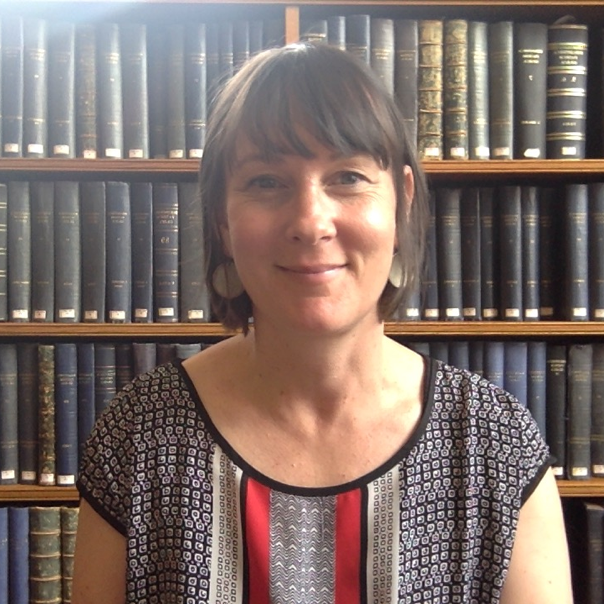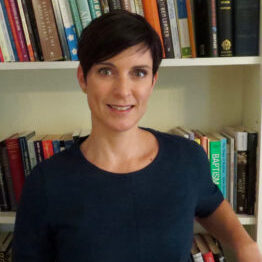Episode Transcript
[00:00:05] Speaker A: You're listening to by the well, a lectionary based podcast, preachers recorded on the land of the Wurundjeri. People.
[00:00:17] Speaker B: Welcome to by the well. I'm Sean Winter.
[00:00:20] Speaker A: And I'm Sandy Borodin.
[00:00:22] Speaker B: And today we're looking at texts for the 15th Sunday in Pentecost, and we're going to be talking together about the song of songs, chapter two, verses eight to 13. We're then going to move to the gospel text, mark chapter seven. And there's a selection of verses from mark seven. And then finally we're going to talk about the first chapter of James. James 117 to 27. Sandy, good to be talking with you again about all things biblical and about preaching.
And I guess if you're like me, we had a conversation a moment ago in which you seem to remember me having preached a sermon on the song of songs, but I can't remember what that sermon ever was.
[00:01:02] Speaker A: I swear that when I. When I was in theological college, you preached a sermon about the song of songs. That was very, very good. And now I'm going to go home and look in my archives and see if I've got it.
[00:01:11] Speaker B: Okay, well, send it to me because I think I've forgotten about it. But our Hebrew Bible reading today is from the song of songs, probably one of the better known passages from the song of songs.
And, of course, all sorts of big questions about the way in which the kind of historical setting of the song of songs as some form of ancient hebrew love poetry, has moved into a process of interpretation and a reception history whereby it becomes some kind of allegorical account of the relationship between Christ and the church. One of the dangers with that latter approach, I think, or moving there too quickly, is I think you just kind of glide over some of the actual features of the text. So what are some of the things that you kind of noticed in these verses from chapter two?
[00:01:57] Speaker A: Can I talk about our context first and then do that? Is that.
[00:02:00] Speaker B: Definitely go for it.
[00:02:01] Speaker A: So, I'm a Melbourne girl. I grew up on Wurundjeri country here in Naamdeh, and at this time of the year, which also happens to be my birthday, which is why I'm kind of keyed into it, it's ghouling season. It's the season when all the blossoms and the flowering and the start of spring happens. And as a southern hemisphere Christian, I am used to the seasons being completely the wrong way around for all of the liturgical times of the year. And I read these the other day and I went, it's a spring reading. We're in ghouling season, and that's exactly what the text is talking about. That never happens.
[00:02:40] Speaker B: No, because normally we're doing easter here in the middle of autumn, right? So here at least, we have a spring reading in spring season. And one of the features of the text is this kind of very strong evocation of landscape and life bursting back into the land, flowers appearing, turtledove singing the fig tree putting forth its figs is kind of. You don't get. You think you don't get full figs in spring, but maybe you get the buds at least, and the vines are in blossom. So all of this is a way of framing some kind of sense of vitality, joy, abundance and pleasure with then this relationship between the person singing the song and their beloved.
[00:03:31] Speaker A: There's also a sense that something difficult has happened, because we've had this. The winter's past, the rain is over and gone. We've been through a kind of difficult time. Winter is not great for all of us, is it? Some of us love winter, but not all of us do.
And yet now this hope is coming forward. So I think spring being this time, where you see, I don't know about you, but I see the daffodils coming up and it's like, ah, yes, there's the blossom. Ah, yes, there will be life, there will be warmth again. There will be, you know, baby lambs and all those things that happen.
[00:04:07] Speaker B: Yay. I think it's a really interesting text when we think about how we read the Bible with kind of a renewed sense of attentiveness to what we might call the kind of ecological dimensions of the text. It's a text that evokes the natural world in a particular kind of a way, and then kind of locates the people, or particularly the person and particularly the man within it by associating him so that my beloved is like a gazelle in verse nine or a young stag.
And so you get this notion that the act of receiving the beloved is equivalent somehow to the act of bearing witness to this vitality and this growth and this life. So it's a text that is spoken from the women's perspective, which is an interesting thing in the Hebrew Bible.
And in one of the kind of commentaries I read, we have this notion that kind of the lover, the beloved, kind of blends into the landscape, or the landscape becomes part of the landscape because they come and they arrive with this kind of gift of life and love which is to be embraced and to enjoy. So there's kind of celebratory dimension to it. That's very bodily. It's very enfleshed, it's very connected to the natural world. And these are things that. That very often, when we think about how we think about faith, we tend to detach faith from those things rather than embed them within them.
[00:05:38] Speaker A: Yes, yes. There's something for me about finding faith coming, often coming from those difficult times and growing out of pain and suffering and difficulty.
The times in our lives when we tend to turn to God because we need God tend to be the winter times, and that's when new growth can come. Can come. So I think. I think I like the metaphor. The metaphor works beautifully for me.
[00:06:08] Speaker B: What do we do, then, with this notion that we take this celebration of love and what we do is we kind of transpose it into a theological key in which it becomes a kind of allegory of God in relationship to humanity or Christ's relationship to the church, to be even more specific. Do you think that's a legitimate thing that we can do?
[00:06:29] Speaker A: It's interesting, when you said Christ at the beginning, my brain went, oh, hang on, isn't it God? Because it's an Old Testament text. I wouldn't necessarily have jumped to a New Testament, you know, Christ kind of allegory, but certainly it's about the relationship between God and God's beloved, which is all of us, the church, it's us, it's God's creation. And I think one of the things I found most helpful that's really opened up my understanding of all sorts of things in recent times has been listening to Jeff Thompson talking about the cosmic Christ and God's act of salvation being for the whole of creation.
And this is inviting the whole of creation into relationship with his beloved, the stag, the gazelle. So it's not just about the woman, two individual characters, it's about the whole of creation doing this dance of love with one another. And I find that really appealing.
[00:07:26] Speaker B: I think that's really helpful. So one of the reasons why I think some. Some people avoid the song of songs is they're a bit wary of, actually the dominant tradition in the church, which is very much christocentric. Christ is the bridegroom, the church is the bride.
And the relationship then becomes, I mean, Paul does it in Ephesians, Paul. And that whole thing is then deeply gendered in the way that it's constructed and has all sorts of question marks against it for all sorts of very understandable reasons.
But if you broaden it out to that perspective as not so much about the Christ's relationship with the church is actually a subset of the question of how do we think about God in relationship to the world.
That's the primary question. And to move from an articulation of human love that is framed in naturalistic, earth centered terms. And to say that can point us to questions about how it is that God demonstrates God's love towards us, how we are invited. I'm struck by the invitation, which, I mean, you know, that in this uniting church synod, this invitation to arise, my fair one and come away, was the synod theme. We took it as a theme for.
[00:08:42] Speaker A: You and I were both involved in leading various parts of that meeting.
[00:08:44] Speaker B: That's right. I gave some Bible studies in which I pointed out that that notion of movement in response to invitation to get up and then to move or to come is something that we see in the gospels. Jesus embodies that movement. He gets up and he moves towards God. He gets up and invites disciples to get up and to follow after him. He gets up and he moves away from his home in Galilee towards Jerusalem. And so we have a kind of invitational understanding of what it means to respond to love as love is offered towards us.
[00:09:18] Speaker A: And then my job was the moderator, David Fotheringham, invited a group of us to put together an invitation to the whole synod to think about how God might be calling us as a uniting church synod to arise and come away with me. How might we do church differently? How might we be invited into new things where. How might God be calling us to put forth figs and vines in blossom and to give forth fragrance, metaphorically as a synod.
[00:09:46] Speaker B: So there you go. We preach with a view to thinking about themes of renewal and restoration and new life.
[00:09:54] Speaker A: I'm in.
[00:09:55] Speaker B: Okay, let's move on to another text in just a moment.
So let's turn to the Gospel of Mark, chapter seven, verses one to 814 to 15 and 21 to 23, which is something of a kind of radical editing job on a text that actually is probably a composite text of a number of different bits of tradition that have been welded together, perhaps by Mark, but that nonetheless actually draws our attention to really only one aspect of what it is that Jesus is talking about in this story.
I mean, the way that I've always kind of read it is to start with verse five.
[00:10:47] Speaker A: Oh, that's interesting. I was going to say ask your question first, which probably comes from slightly earlier than that.
[00:10:52] Speaker B: Okay, let's go back, grumpy.
[00:10:56] Speaker A: And I don't think you can understand why Jesus is grumpy unless you look at chapter six and what happened back there when the disciples just didn't get it yet again.
And so he's tried to explain something to them, and now he's wanting them to hear this, and he's being quite firm about how this particular piece of teaching, which seems to me important to understand how you got to that bit.
[00:11:23] Speaker B: So I think I'm not going to psychologize Jesus relative level of grumpiness.
We're in a section in mark where the section is actually dominated by the two feeding miracles that happen and by the sea crossings that happen. So we've got a section, mark six to mark eight, where we have all sorts of evocations of the idea of exodus and of the notion that God's people are being invited to go on a journey during which they receive some form of instruction.
And that gives Mark an opportunity to say two very clear things. The first is that the disciples don't understand the instructions that they're getting, or even what's happening around them. And the second thing is that this is all being done in the face of hostile opposition of one sort or another.
So I think chapter seven kind of is a way of articulating Jesus insistence about certain things, particularly in the face of those categories, those groups of people, Pharisees and scribes, named in seven, one who constitute the kind of formal opposition. But you're absolutely right.
One eye is on the disciples.
[00:12:37] Speaker A: Yes.
[00:12:38] Speaker B: And their lack of understanding and the frustration that comes from that. I think so. That's right.
[00:12:44] Speaker A: And the other half is on the jewish community, the Pharisees, the scribes and all the other people that have come.
[00:12:50] Speaker B: That's right. And the two questions at stake, I think, are there in verse five. Why do your disciples not live according to the tradition of the elders? So that's kind of question one. Why don't you give us stuff about traditions and the way in which a community of faith has interpreted and unfolded, unfolded and unpacked its own history and story in traditions and what are by now self evident understandings of what a history in a text means?
[00:13:20] Speaker A: Fascinating question to ask the Pharisees who are supposed to be the holders of these.
[00:13:24] Speaker B: Absolutely. And their job is precisely to understand and to articulate and to apply the tradition, the lectionary texts or selection. The lectionary section diverts us away from that question, because the answer to that question happens in verses six to 13, which we don't consider. The second question in verse five is, why do they eat with defiled hands. And that's a question about purity.
[00:13:49] Speaker A: Yeah. So it's all about behaviour and morals.
[00:13:51] Speaker B: And purity, particularly about purity, which is not quite the same, I don't think, as behaviour and morals. It's a question of how do you mark yourself out as, to use the term, holy, and in particular, how do you do so in a way that aligns with jewish understandings that come from the tradition of what priests have to do.
So Mark seems to think that all Jews used to have to wash their hands. Actually, that's never been the case. The Hebrew Bible just says that it's only priests who have to do that.
The pharisees may have been people who extended that requirement to lay people. That's one of the moves of the pharisaic movement. It's to extend priestly holiness requirements to the laity.
And Jesus seems to be questioning that. And Mark, I think, has then added extra layers onto this so that it becomes a kind of.
Almost a kind of a philosophical point about what it is that causes human beings to sin. What is it that causes impurity? And, I mean, the basic summary is it's not something that is about what is outside coming in, it's about what is inside getting out.
[00:15:06] Speaker A: It's about your own heart and the way that you interact with others and with God, really, isn't it? Your evil intentions come from within. That's verse 21.
[00:15:17] Speaker B: That's it from the human heart, the notion of evil intentions. Again, this is a very jewish idea, that all human beings are capable of having good and evil intentions. And these two things are kind of at war with each other. There's an evil disposition or orientation, and there's an orientation towards the good.
So what counts is not what you take in from outside, but what counts is the way in which you control or exercise some kind of discernment, moral discernment. I think you're right about the deeds that you do that reveal what's going on inside. And all of the deeds are actually focused on the question of how you treat other people effectively.
[00:15:59] Speaker A: So, I mean, I remember all sorts of things about holiness codes. These lists come from somewhere. Or how are these lists of sins that we get in various places in Paul and in this text? Where do they come from?
[00:16:11] Speaker B: So this is a vice list, and we know that there are versions of them in the Hebrew Bible. I mean, there's a list of thou shalt not. And the holiness code does contain numerous descriptions, but not in this kind of, you know, one word summary. Yeah, the holiness codes tend to do that in terms of case law. If you do this, then that's impurity. If you do this, then it isn't.
Vice lists themselves are very. We find them in greek sources very often, and Paul uses them in the same way.
The fruit of the flesh in Galatians, chapter five. In contrast to the fruit of the spirit, for example, the works of the flesh.
[00:16:49] Speaker A: This is bang, bang, bang, bang in a very mark and kind of. Let me just give you the list.
[00:16:54] Speaker B: That's right.
But the point of them is that although they're primarily about how you orientate yourself to other people, what they fundamentally reveal is what's happening in yourself, in your own heart. And I think that's a kind of ongoing thing to reflect upon. I think christian ethics and the way in which we use the Bible to think about moral issues today.
Quite rightly, we focus on the question about how you treat others.
But it seems to me that there's a prophetic challenge here. I think this is in the tradition of the prophets that what you do and the way in which you live in relationship with others kind of reveals an inner disposition. And whether that's, you know, in line with what God would want for you.
[00:17:45] Speaker A: Or not, it seems to me that if you have an inner disposition that's about love and about caring for other people, being respectful for other people. And none of these things are things that you would want to enter into, would they?
[00:18:00] Speaker B: That's right, yeah, absolutely.
And I think so what you've got is you've got something that starts off with a conversation about food laws, like eating with unclean hands, and then expands out into this broader philosophical, moral point.
[00:18:17] Speaker A: So I. Not that I'm foreshadowing where we might go next, but I find this a really negative list. And I would wonder what one would do with that in a congregation, verses 21 to 23, in a congregation that had small children. I might not want to be having a conversation about what some of those words might mean. Is there another way that we could perhaps speak, perhaps not in the negative of the negative way, but perhaps in a positive way about how your heart might be filled with something that might change who you are?
[00:18:48] Speaker B: I suspect that. I mean, I think purity language is difficult language to talk about or to use straightforwardly in a non purity culture.
[00:19:00] Speaker A: Yes.
[00:19:01] Speaker B: So we don't live in a culture in which moral or ethical behavior is defined by notions of purity in any straightforward sense. So there's some hermeneutical work that we need to do, I think. But I think the basic point of verse 15, which feels a bit like a bit like an independent saying that kind of could have been said over and over again in lots of different contexts.
[00:19:26] Speaker A: It does, doesn't it?
[00:19:27] Speaker B: That it's not what's outside of you that messes things up. It's the things that come out of you that are things that mess up. I think that's the kind of general principle that we can perhaps use to encourage ongoing self reflection.
[00:19:40] Speaker A: I think my grandmother might have said something like that.
[00:19:43] Speaker B: You think so?
[00:19:43] Speaker A: I reckon there was lots of lines she had that I remember, but it was something. Something like that sounds like something she would have said.
[00:19:52] Speaker B: But I think you're right. I think preaching from this text, there are two dangers, I think. One is that a preacher uses it as an excuse to kind of wrap people over the knuckles for whatever. The other is. It's used as an excuse to denigrate forms of religion where the emphasis on particular kinds of ritual or purifying practice. So this is a passage that can be used very easily, I think, in the service of forms of christian anti Judaism, and I think that needs to be avoided. This is a debate between Jews about how the law is best to be interpreted and what's the status of the tradition of the elders.
[00:20:30] Speaker A: Remembering that Jesus is a jew is very important.
[00:20:33] Speaker B: Absolutely. And even in verse 19, where Mark inserts this narrative comment, thus he declared all foods clean.
Nothing in what Jesus has said leads to the conclusion that all foods are declared clean. So we need to be very careful about how we handle these texts, I think. But maybe noting your point about how this is negative, maybe we should turn to a text where there's some positive suggestions about what we should be doing. We'll talk about James in just a moment.
So, James, chapter one.
I like James.
[00:21:14] Speaker A: I do, too. I find James.
[00:21:15] Speaker B: Why do you like James, Sandy?
[00:21:17] Speaker A: I think it gives us some really fairly straightforward advice about how to live, and I think that people often are looking for that, and the Bible doesn't really do that a lot of to think so. I think people find it very helpful.
[00:21:32] Speaker B: Yeah.
[00:21:33] Speaker A: And it sits. I mean, you know, it sits against that kind of faith. It's that faith and works conversations where James gets picked up, isn't it? Is it about faith or is it about doing things?
I think it's about both, obviously. But, yeah, I think. I think it does help us to understand something about as a christian person and if the word has changed me, or if engagement with the Christ, the one who brings new life and all that has changed me in some way, then I ought to be different. My actions should be different.
[00:22:08] Speaker B: Yeah, right. I think one of the big questions about James is, I mean, clearly it's a text that's very jewish in the way that it thinks about behavior and morals. We have references to the law here, and to doing what the law requires is a text that is, I think, quite clearly comes out of the world of what we often call jewish Christianity in some sense or another.
So one of the things to be a bit wary of, I think, is to jump to two quick news about what this word is. So we have it a number of references. So we have the notion of the word of truth, which is there in verse 18. He gave birth to us by the word of truth.
That's kind of interesting.
Further on, we have the notion of the implanted word in verse 21. Welcome with meekness the implanted word that has the power to save your souls.
And then I think we have the notion of being doers of the word and not just hearers of the word. So one of the ways of thinking about preaching from this text is to take those kind of repeated references to the word and then ask, what word are we talking about here? Yes, and I think we can be quite quick to christianize it, to think that what we're talking about is the gospel or the preaching of salvation or something or other.
But commentators on James also think about, for example, the word of truth, which gives us life, might be God's word spoken into creation, that brings life into being.
[00:23:48] Speaker A: It sends me back to John one when I hear that language. You know, the word is Jesus, the word is Christ, kind of. That's where my head goes, and that's.
[00:23:57] Speaker B: Where christian theology very clearly takes it. Yes, but if James is a text that was written before we get that extended christological perspective, maybe we're talking about something that isn't quite as christian as we think it is.
[00:24:10] Speaker A: That's interesting. Can I tell you my other thing that I wonder about in this is that imagery of the mirror, which I now can't.
[00:24:18] Speaker B: Verse 23, if any, are hearers of the word and not doers, they are like those who look at themselves in a mirror. They look at themselves and on going away, immediately forget what they were like.
[00:24:30] Speaker A: So as someone who likes to have opportunities in sermon like things for people to reflect, for the congregation to reflect, and to wonder about their own interior world or how this might affect them, I wonder about whether it's possible to use a mirror or in fact, given we've all got a phone in our pocket these days. Could we actually just look at the camera of our phone, at our own face and wonder about this? What is that imagery about, Sean?
[00:24:57] Speaker B: Well, it's pretty difficult to actually nail it down. I suspect what you would expect is a contrast between people who look at themselves in a mirror and the author saying, don't do that. What you're to look at, this is verse 25, is to look into the law. So you're not going to find out how to do the word by looking at yourself. You're going to find out by looking.
[00:25:22] Speaker A: To the law, which something's got, something's going to change me, and it won't be my own self as I am now, but the law will somehow.
[00:25:29] Speaker B: But that's the comp, that's the complicating idea. So then they say, but the problem with looking the mirror is not that you're looking at yourself, it's that you're looking at yourself and. And you're not seeing yourself in a way that stays with you. You walk away and you forget actually who you are. So I think you're right. I think it's the idea that when you look at yourself, you're to see yourself as someone who has received the word of truth, as someone in whom that word has been implanted, as someone who has received the law.
[00:26:02] Speaker A: So a wondering question in preaching might be something like, I wonder how you see yourself as someone who has received the law. I wonder how you see the work of this, of this word in your life. How has it transformed you? And ask people to sit with some of those questions.
[00:26:22] Speaker B: So, arguably, one of the things that preachers do is Sunday. By Sunday, they hold up scripture in front of people, and scripture becomes mirror. You're invited to look at yourself not as just the person that you are or the week that you've had or the mood that you're in, but to look at yourself as the person that God created, the person that Jesus Christ died for, the person who is part of a community of faith and life and hope and justice, and I guess the equivalent would be, and then when you walk out the door, do you forget that you're that person?
Or does the memory of you being that person then make a difference to what you do as well as what you've heard?
[00:27:07] Speaker A: So I always think when I'm writing a sermon or thinking about a preaching moment, it's the so what? Question. Because if this text doesn't somehow change who I am or how I'm going to interact with people in the next week. It's kind of not really a very living word, is it? It's a word that speaks into my life and changes who I am. In fact, for all of us, that's what it does. So that's what I would be wondering.
[00:27:28] Speaker B: I think that's right. And then if you ask, want to ask two questions about practically, what does that look like?
Well, it makes a difference to the way in which you speak and it makes a difference to your capacity to listen. I'm very struck by the movement from 117 to 18 which talks about God having given you this perfect gift in fulfillment of his own purpose. He gave birth to us by the word of truth. This is kind of privileged status of the person who has received this extraordinary gift from God.
And then the following words, which kind of ask, well, what does that look like practically?
And I think our culture says if you've been given privilege and status and a gift and skills, then the first thing that you do is you tell everyone about it.
[00:28:21] Speaker A: Yeah, you know much better.
[00:28:22] Speaker B: That's right, exactly. Whereas this says the first thing you do is you shut up and you listen.
[00:28:26] Speaker A: Be quick to listen, slow to speak. That's right.
[00:28:30] Speaker B: So the way in which we speak, I think both personally, I think there's also some lessons here about the church, which is often quick to speak when it should be being quiet and listening.
And then the second thing is, I think what comes in at the end in verse 27 is the notion of the practice of justice. So religion that is pure and undefiled. So this is the connection back to Mark. Mark is it's what comes out of you that shows whether you're defiled or not. Not what goes into you. Well, here we have purity and defilement. Language now positively constructed as it's caring for orphans and widows in their distress and keep oneself unstained by the world. So the practice of justice is the other thing that makes it clear that this is what we are and this is how we're supposed to live in.
[00:29:18] Speaker A: And if that's not central to your life as a community of faith, then, yeah, what do you want about then?
[00:29:24] Speaker B: You're just a hearer, you're not a doer. Yeah. Thanks, Sandy, that's been a great conversation.
[00:29:30] Speaker A: Thank you. Bye.
By the well is brought to you by Pilgrim Theological College and the Uniting church in Australia. It's produced by Adrian Jackson. Thanks for listening.





